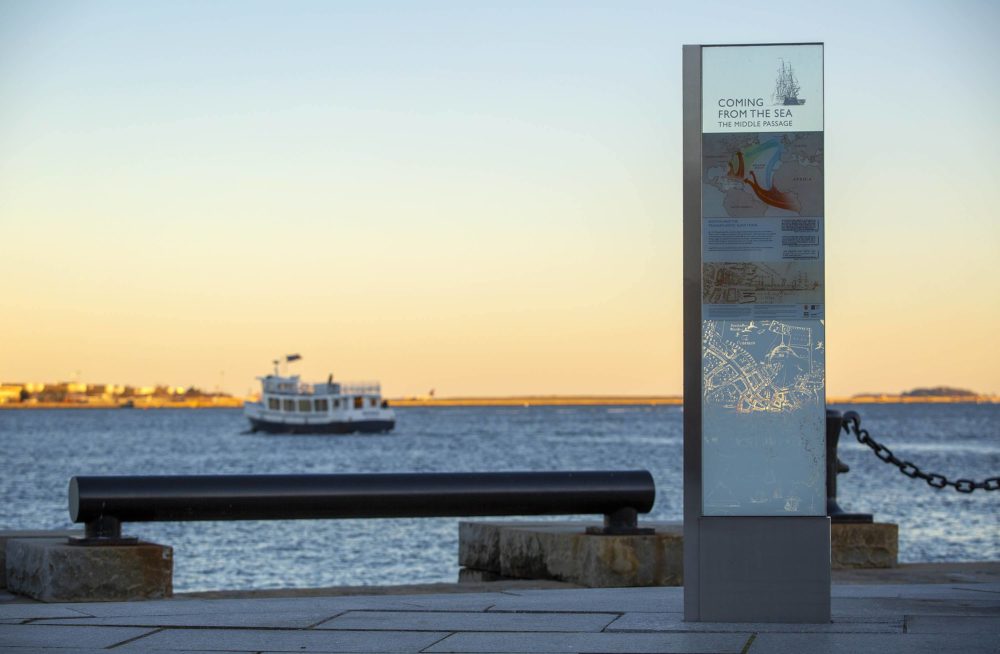Boston could be next city to consider reparations for Black residents

The Middle Passage port marker at the end of Long Wharf, Boston. (Robin Lubbock/WBUR)
At the end of Boston’s Long Wharf is a glass and metal slab that tells a story of the city’s role in the trans-Atlantic slave trade. The monument stands to remind those walking along the waterfront that Boston was a hub for ships carrying African people who were sold into slavery.
The marker could be seen as a symbol of how the city is grappling with its past. But when it comes to slavery, and the centuries of systemic racism that followed, folks like NAACP Boston president Tanisha Sullivan want more than symbols for Black people — they want reparations.
“This is a conversation that is a long time coming, and action that is a long time in coming,” she said.
Some cities and towns across the country have begun initiatives to address reparations for Black residents who have been impacted by systemic racism, and Boston could soon join them.
At-large City Councilor Julia Mejia is leading an effort in City Hall to establish a commission that would examine the negative effects of slavery and racial discrimination on Boston’s Black residents and how the city can repair the damage.
“Even though slavery happened years ago, this is so much more than just slavery,” said Mejia. “It’s really about [addressing] the harm that has been caused and how we continue to pass on generational poverty year after year to Black Bostonians.”
